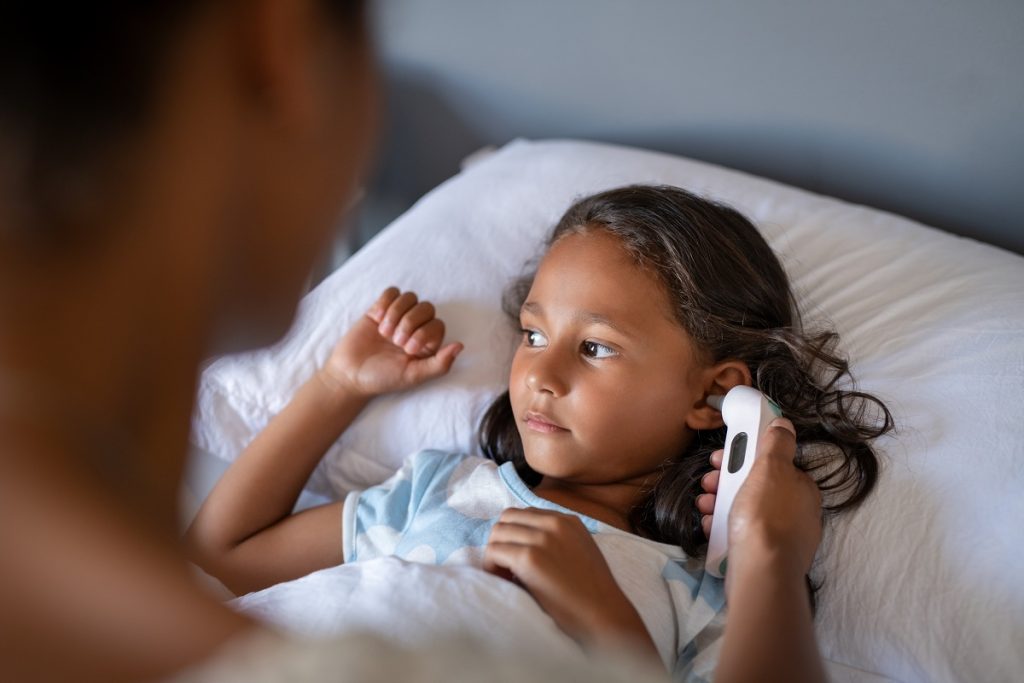- Pneumonia is an infection that affects the lungs, caused by various microorganisms.
- Symptoms include fever, cough, difficulty breathing, chest pain, and fatigue.
- It can spread through air or contact with contaminated surfaces.
- Infants and young children are at higher risk due to weakened immune systems.
- Prevention measures include immunization, hygiene, and a healthy diet.
Pneumonia is an infection in the lungs that can affect adults and children. However, children are more susceptible to this disease, which can be dangerous if not diagnosed and treated in time. Here’s what you need to know about the nature of pneumonia, how you can treat it, and how to prevent it in the future.
What is Pneumonia?
Pneumonia is an infection that affects the lungs, specifically the alveoli air sacs. It can be caused by various microorganisms such as bacteria, viruses, fungi, or parasites. Pneumonia can range in severity from mild to severe and can affect people of all ages, but it is most dangerous for infants, young children, older adults, and individuals with weakened immune systems.
The infection occurs when the causative agents enter the lungs, triggering an immune response that leads to inflammation and accumulating fluid and pus in the alveoli. This hampers the lungs’ ability to efficiently exchange oxygen and carbon dioxide, resulting in symptoms and complications.
Signs and Symptoms
Pneumonia can cause flu-like symptoms, such as fever, cough, and chills. Additionally, your child may experience difficulty breathing, chest pain, and fatigue. Infants may also experience irritability, lack of energy, and poor feeding. If you notice any of these symptoms in your child, you should seek medical attention immediately.
Spread
Pneumonia can spread through various types of bacteria, viruses, or fungi that can be transmitted through the air. Children can contract pneumonia by breathing in infected droplets or touching surfaces contaminated with the germs and then touching their mouth or nose.
Risk of Pneumonia?
Children who have weaker immune systems are more susceptible to getting pneumonia. Here are four common risks of this disease:

Age
A child’s immune system is still developing, making them more vulnerable to infections. Infants and young children are at the highest risk for pneumonia.
Premature Birth
Children born prematurely have an increased risk of developing pneumonia due to their underdeveloped lungs.
Chronic Illness
Children who suffer from chronic illnesses such as asthma or cystic fibrosis are more prone to contracting pneumonia because their weakened immune system makes them more susceptible to infection.
Poor Nutrition
Malnutrition can weaken the immune system, leaving children vulnerable to pneumonia. Poor nutrition also increases the risk of complications if they do contract the disease.
Treatment Options
The treatment options depend on the severity of the disease and the child’s age. Here are three ways to treat it immediately.
Visit a Professional

Your first option is to visit a professional. A local pediatric urgent care clinic will have the necessary equipment to diagnose pneumonia among children. Their facilities should also have the necessary medications to treat it.
Medication and Rest
Your doctor may prescribe oral antibiotics and cough suppressants to help your child fight the infection. They also might recommend plenty of rest and fluids for their recovery.
Oxygen Therapy
If your child has severe symptoms, they might need oxygen therapy to increase their oxygen levels in the blood. This can be done through a mask or tube inserted into the nose that delivers extra oxygen directly into the lungs.
Preventative Measures
Prevention is always better than cure, and there are several things you can do to reduce your child’s risk of getting pneumonia. Here are three ways to do that:
Immunization
Pneumonia is preventable! Immunizing your children on time will help reduce their risk. Vaccines like PCV13 should be given to everyone under two years old as it helps protect against 13 different types of pneumococcal bacteria, which are significant causes of pneumonia.
Hygiene and Cleanliness
Cleanliness is essential to prevent the spread of germs. Ensure you keep your home clean, and teach your children basic hygiene rules, such as washing their hands thoroughly after using the restroom or playing outdoors.
Healthy Diet
A healthy diet will strengthen your child’s immune system, making them less prone to pneumonia. Include plenty of fruits and vegetables in their meal plan, as well as lean proteins and whole grains.
You can take simple steps to protect your child from pneumonia and other infections. You must remain vigilant about monitoring for any signs of this serious illness, so you can get them treated quickly if necessary. Your little one can stay healthy and happy with proper care and prevention measures!




